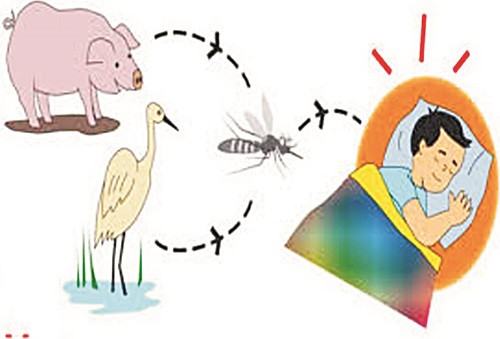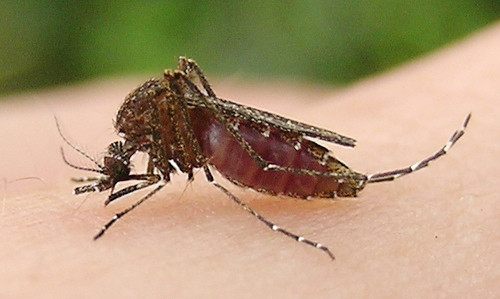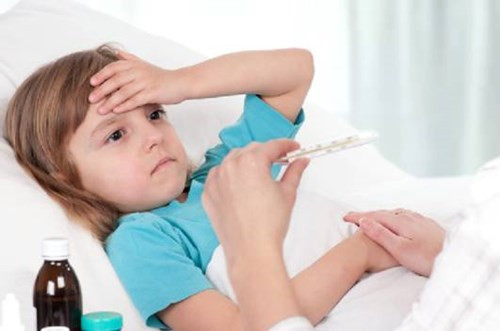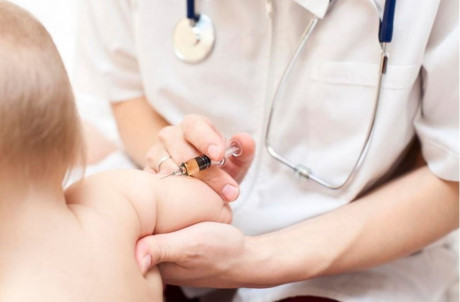Early symptoms and prevention of Japanese encephalitis
(Baonghean.vn) - Japanese encephalitis (JE) is an acute viral infection that damages the central nervous system, commonly found in children under 15 years old. The disease has a high mortality rate, and its sequelae can cause paralysis and brain damage.
Reason
 |
| The disease is transmitted to humans through mosquito bites. |
The cause of the disease is a virus called Japanese encephalitis virus.
The disease is transmitted to humans through mosquito bites. Culex mosquitoes suck the blood of animals infected with the virus (birds, including some that eat lychee and longan fruits such as cuckoos and geese; some livestock, the most important of which is domestic pigs) and then bite humans and transmit the disease to humans.
 |
| Culex tritaeniorhynchus mosquitoes breed heavily in the summer. |
In Vietnam, the Culex tritaeniorhynchus mosquito breeds strongly in the summer (from March to July), and is most active at dusk. This mosquito has a high density in the plains and midlands.
Symptoms of Japanese encephalitis
After an incubation period of 5 to 15 days, the disease will appear in 3 stages:
 |
| The patient has a sudden fever, often accompanied by chills, fatigue, headache, nausea, and vomiting. |
Initiation phase:Approximately 1 to 6 days. The patient has a sudden fever, often accompanied by chills, fatigue, headache, nausea and vomiting.
Full development stage:Continued high fever of 38°C-40°C, lasting for a long time; signs of meningitis (headache, stiff neck, vomiting and nausea, constipation); signs of disturbed consciousness (agitation or lethargy, gloominess, possibly coma); signs of localized central nervous system damage (convulsions, spontaneous tremors in fingers, tongue, eyelids or whole body, spastic paralysis); accompanied by autonomic nervous system disorders.
Mortality rate from 0.3% - 60% depending on early or late detection of the disease, level of emergency resuscitation techniques to prevent cerebral edema, respiratory failure, cardiovascular collapse and bacterial superinfection.
Recovery phase:If the patient survives, he or she may make a full recovery. Some severe cases may leave behind spastic paralysis of the upper or lower limbs, facial paralysis and/or mental disorders, emotional instability, personality changes, and intellectual disability.
How toJapanese encephalitis
 |
| Children from 1 to 5 years old are vaccinated against Japanese encephalitis under the expanded immunization program. |
Vaccination is the most effective, safe and economical disease prevention measure.
Kill mosquitoes and prevent mosquito bites.
Households need to keep barns clean and airy, and build livestock areas far from homes.
People must keep their houses clean, airy, and spray insecticide to kill mosquitoes and larvae.
Dress children in long clothing and sleep under mosquito nets. There are several topical medications that can be used to prevent mosquito bites and are effective and safe.
Who should get the Japanese encephalitis vaccine? People living in areas where Japanese encephalitis is endemic, especially children between 1 and 15 years of age. Tourists, workers, business travelers, immigrants from non-immune areas, staying more than 1 month in rural areas and more than 12 months in cities where Japanese encephalitis is prevalent. When to vaccinate children against Japanese encephalitis Divided into 2 groups: For children under 5 years oldThen inject 3 basic doses according to the vaccination schedule of the Expanded Immunization Program as follows: Dose 1: when the child is 1 year old; Dose 2: 1 to 2 weeks after dose 1; Dose 3: one year after dose 2. Then, a booster shot is given every 3-4 years until the child is 15 years old. For children over 5 years oldIf you have never been vaccinated against Japanese encephalitis, you should also get vaccinated with 3 basic doses as follows: 1st dose: as soon as possible; 2nd dose: 1 to 2 weeks after 1st dose; 3rd dose: one year after 2nd dose. Then, a booster shot is given every 3-4 years until the child is 15 years old. Cases where Japanese encephalitis vaccination should not be given or should be postponed Do not use for children under 12 months of age and pregnant women. People with high fever or progressive infectious disease. People with heart disease, liver disease, kidney disease, severe diabetes, leukemia and other malignant diseases. People with hypersensitivity to Thiomersal or mouse brain preparations, or allergic to previous Japanese encephalitis vaccine injection. People infected with HIV have developed AIDS./. |
Pear Flower
(Synthetic)
| RELATED NEWS |
|---|

-2141b1e2e07fbede385eebb397ba3258.jpg)
